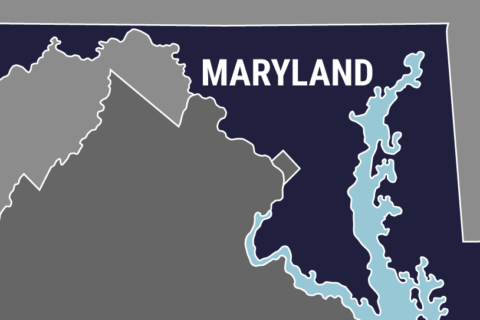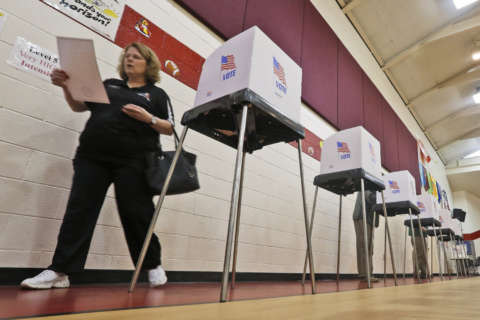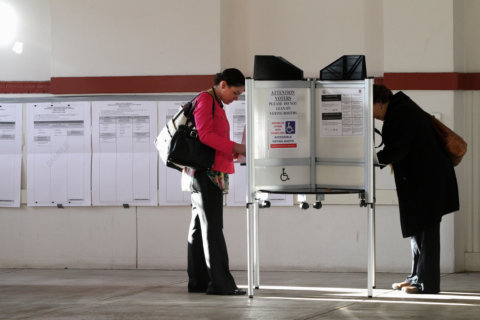WASHINGTON — When voters in Maryland get their ballot, they’ll see four names in the box for U.S. senator.
Sen. Ben Cardin, the incumbent Democrat, is seeking his third term. Tony Campbell, a political science professor at Towson University, is the Republican candidate. Neal Simon, a business executive who lives in Potomac, is running as an independent candidate. Libertarian Arvin Vohra is also on the ballot.
A Goucher Poll released in September showed Cardin ahead of his challengers: 56 percent of likely voters said they would choose Cardin. Seventeen percent said they would vote for Campbell, 8 percent would choose Simon and 1 percent would choose Vohra. Fourteen percent are still undecided.
Cardin, Campbell and Simon appeared in a televised debate earlier in October where they discussed gun violence, immigration and health care. While Cardin touted his record on Capitol Hill, both Campbell and Simon criticized his decadeslong career as part of the problem with current partisanship. Vohra was not at the debate.
Take a look at the candidates running in the U.S. Senate race in Maryland:
More coverage on 2018 elections in Maryland:
- Maryland voter guide: General election 2018
- In Md. Senate district with tightest race in 2014, another close contest
- WTOP’s “Voter Voices” series
Sen. Ben Cardin (D)
Cardin served in the House of Representatives from 1987 to 2006, when he was first elected to the Senate. His decades in public service stretches back to the Maryland House of Delegates.
“I have a proven record of getting things done. I have the experience in working with both Democrats and Republicans to produce results and been able to do that during the most challenging times,” Cardin told WTOP.
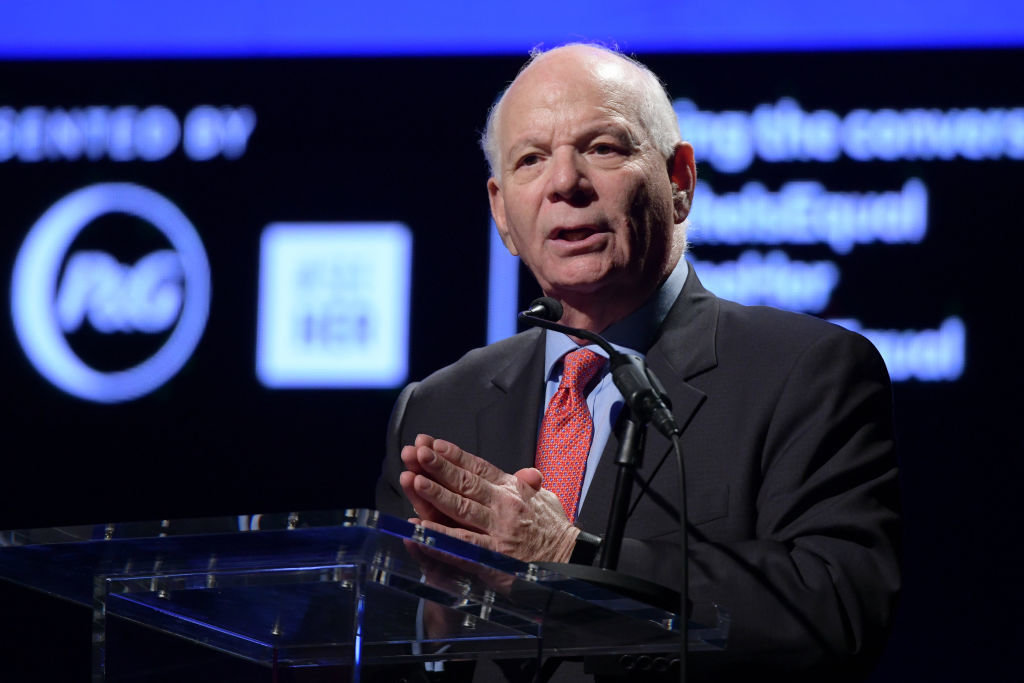
He is part of several Senate committees, including the Committee on Environment and Public Works. Cardin, a third-generation Marylander, describes himself as a “leading advocate for the Chesapeake Bay” on his Senate website.
“I’ve represented the people of Maryland in the Senate, standing up to the president’s assault on our values, yet able to get results for the people of Maryland. I was able to do that in preserving the funding for the Chesapeake Bay, despite the fact that the president zeroed out the program,” Cardin said.
“I was able to protect the gains that we’ve made in the health care system, and I’ve been a leader on America’s role internationally, protecting our democratic values,” he added.
If he is re-elected, Cardin said one of the most critical issues he would work on is “protecting the advancements that we’ve made in health care.”
In a debate earlier this month with challengers Campbell and Simon, Cardin said, “I strongly supported the Affordable Care Act. I helped in getting it passed.”
He added, “I support a Medicare-type public option within the exchanges for those who need to get health coverage that can’t get it in affordable rates from private insurance.”
When it comes to gun violence, Cardin said during the debate, “What we need to enact nationally is universal background checks so people who have mental illness, or people who are known to be sex offenders or domestic abusers, don’t get guns. We also need to pass a national law to prohibit the private ownership of assault-type military weapons. That makes common sense and will make us safer.”
He also suggested investing in mental health initiatives, adding, “What we can’t do is inaction.”
Tony Campbell (R)
Campbell, who teaches political science at Towson University and is also a former Army chaplain, secured the Republican nomination from a crowded primary earlier this year. He expresses support for President Donald Trump, and his platform includes education reform and national security.
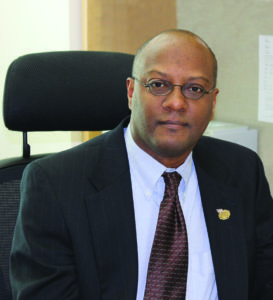
“The last year of traveling around the state and talking to people from one part of the state to another one, from southern Maryland to Eastern Shore to Garrett County, I think the concerns of Maryland are sort of the same: They want to have their kids educated well, they want to be able to go and work and be successful in their careers, and they want safe neighborhoods. Now, the question is leadership,” Campbell told WTOP.
He said he counts education as being one of the most important issues he wants to tackle. For Campbell, he said that meant getting the federal government out of educational mandates.
“When I traveled the state, the thing that I talked about most of all is local control, getting rid of Common Core and protecting our children,” Campbell said.
He said the federal government should not be involved in teacher standards or standardized testing. “Whether I’m talking to teachers from Montgomery County or students and parents from Baltimore City, most people that I talk to, they are very concerned about Common Core and the lack of results that that has had,” Campbell said.
He added that another part of getting the federal government out of education would give schools a chance to better discipline students.
“How can Washington, D.C., tell us how to discipline children at local schools? I think that’s ridiculous. And, so, one thing I would do as the next United States senator is to roll back those regulations that were put in place to stop schools from disciplining children. That’s why the bullying situation has gotten so out of control, because local schools can’t discipline children anymore.”
Campbell called himself a candidate focused on “everyday problems.”
“Go to Cumberland, go to Somerset County, we have people who are as economically depressed as some folks in Baltimore City. So, being a United States senator means that you should pay attention to the entire state, not just the I-95 corridor,” he said.
When it comes to health care, Campbell said during the debate with Cardin and Simon, “I think the states need to decide if they want to expand Medicaid. And, last time I checked, the national government running health care — I’m a veteran, and one of the things I was sickened about was the fact that veterans had to wait for months.”
“I don’t trust a national government to be able to run health care for 330 million people if they can’t manage and implement health care for veterans,” he added. “So, no, I’m not for single-payer health care.”
Also during the debate, Campbell said on gun violence, “We need to make sure that our law enforcement agencies do their due diligence, actually perform investigations on people who are a credible threat, and to take those weapons away from people who are a credible threat.”
Neal Simon (I)
Simon, CEO of Bronfman Rothschild, is running as an independent candidate. He said he’s running for the Senate seat because he wants to bring the country together “without party labels.”
“Like so many people, I am tired of the political brawl that we’re watching every day and the bad results we get from our federal government, and I’m frustrated with the divisiveness that’s created by our political leaders,” Simon told WTOP.
In a debate earlier this month, Simon said he didn’t vote for Trump, but he has expressed support for current Republican Gov. Larry Hogan.
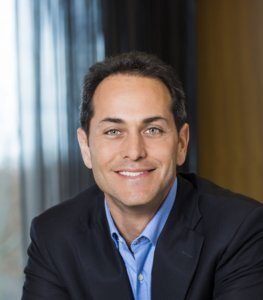
“I think Gov. Hogan has been a model for how our federal government can work. He’s worked across the aisle with the Democratic state legislative branch to get things done. He’s avoided confrontational issues, and I think our federal government can learn from that,” Simon said.
Some of the issues he said were on his slate include lowering health care costs, increasing the number of high-paying jobs in Maryland and political reform.
“I support ending gerrymandering, campaign finance reform, opening primaries, term limits, anything that will reduce the partisanship and extremism,” he said.
In order to combat rising health care costs, he said, “Right now, the two parties argue over how to pay for an inefficient health care system, and what we need to do instead is change the way the system works so we’re incentivizing wellness rather than more procedures and more tests and more doctor visits.”
Simon added that what set him apart from other candidates was his independence. “I’m the only candidate in my race not beholden to a party leader, and I’ve taken no party money and I want to represent the people of Maryland — I don’t want to represent Chuck Schumer or Mitch McConnell,” he said.
During the debate with Cardin and Campbell, Simon said his proposal to combat gun violence would be to focus on “common ground,” which meant universal background checks that would prevent terrorists and criminals from getting weapons, preventing people with a “volatile mental state” from getting weapons, and banning bumps stocks “like the one used in Las Vegas.”
As part of his closing statement in the debate, Simon said, “Senator Cardin was first elected in 1966, and I’m sure he had good intentions, and I’m sure during his first two and three decades he got some things done. But, today, he’s part of the problem.”
Arvin Vohra (L)
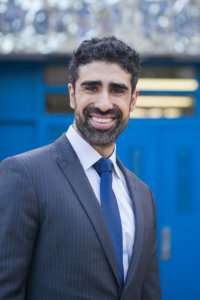
Libertarian candidate Vohra is running on a platform to shrink government. He is also already planning a presidential campaign should he not make it to the Senate.
“My goal is to end the war on drugs, to end involvement in foreign wars and to stop creating enemies through them, to end the entire welfare state to increase personal responsibility, to get government out of education and medicine to improve quality and lower costs, and to end the income tax,” Vohra told WTOP.
He said that he aims to cut government spending down to 1992 levels or lower, which would mean shutting down many government programs and overseas military bases.
Vohra is also taking on education reform, saying, “The biggest mistake that Americans have made is to let government manage education. It has allowed education to turn essentially into low-quality government propaganda.”
He said he wanted to “make sure government is not involved with getting involved with our lives in ways that it does not need to be.” In reducing government involvement in people’s lives, Vohra has also expressed controversial views around age of consent laws.
Though Vohra said he hopes to be elected to the Senate in November, he already has plans for a presidential run. If he were to be elected as president, Vohra said on his first day, he would pardon all nonviolent drug offenders, gun owners and tax evaders.
“To me, the most important thing I’m going to be doing in that first day as president is taking on the role of pardoner-in-chief,” he said.
WTOP’s Kate Ryan contributed to this report.


